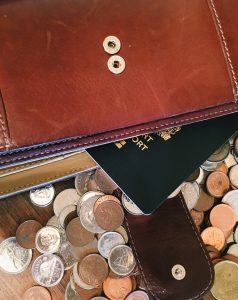Forex trading is the act of buying and selling currencies from different countries in order to make a profit. In order to make trades in the forex market, traders need to use a broker, which is a company that provides access to the market and executes trades on behalf of the trader. One of the most important aspects of forex trading is understanding spreads.
What are Spreads?
A spread is the difference between the bid price and the ask price of a currency pair. The bid price is the price at which a broker is willing to buy a currency, while the ask price is the price at which the broker is willing to sell a currency. The difference between these two prices is known as the spread.
For example, let’s say that the current bid price for the EUR/USD currency pair is 1.2000, and the ask price is 1.2002. The spread in this case would be 2 pips (the smallest unit of measurement in forex trading).
Spreads can be fixed or variable, depending on the broker. Fixed spreads remain the same regardless of market conditions, while variable spreads can widen or narrow depending on market volatility. Some brokers also offer floating spreads, which means that the spread can change depending on market conditions.
Why are Spreads Important?
Spreads are important because they affect the cost of trading. When a trader enters a trade, they must pay the spread in addition to the market price of the currency. The spread represents the profit that the broker is making on the trade.
For example, let’s say that a trader buys the EUR/USD currency pair at 1.2002. If the spread is 2 pips, the trader would actually be buying the currency pair at 1.2004 (1.2002 + 0.0002). If the trader were to sell the currency pair immediately, they would have to sell it at the bid price of 1.2000, resulting in a loss of 2 pips.
The size of the spread can also affect the profitability of a trade. In general, the smaller the spread, the less the trader has to pay in transaction costs, and the easier it is to make a profit.
Factors that Affect Spreads
Spreads can vary depending on a variety of factors, including market volatility, liquidity, and the broker’s own pricing policies.
Market volatility refers to the degree of price fluctuations in the market. When the market is highly volatile, spreads tend to widen as brokers try to protect themselves from large market movements.
Liquidity refers to the availability of buyers and sellers in the market. When there are more buyers and sellers, spreads tend to be tighter, as brokers compete for business.
Brokers also have their own pricing policies that can affect spreads. Some brokers may offer lower spreads in order to attract more customers, while others may charge higher spreads in order to generate more revenue.
Conclusion
Spreads are an important aspect of forex trading, as they affect the cost of trading and the profitability of trades. Traders should be aware of the size of the spreads offered by their broker, as well as the factors that can affect spreads, in order to make informed trading decisions. By understanding spreads, traders can better manage their trading costs and increase their chances of success in the forex market.






